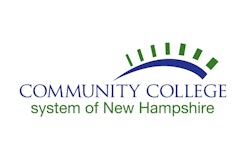A state Senate bill that would provide free college tuition for eligible students at West Virginia’s technical colleges has been approved by the West Virginia House of Delegates, by a vote of 85-13. If the Senate approves of the House adjustments to the legislation, it will go to the governor’s desk for review.
“West Virginia currently faces a human capital crisis, as the state regularly ranks amongst the lowest states in the nation in workforce participation rates,” Senate Bill 1 stated. “Improving the state’s workforce participation rates and the level of the workforce’s career education is critical to economic development and making West Virginia a more prosperous state.”
The bill, led by Senate President Mitch Carmichael, would allow for the creation of partnerships between public secondary schools and community and technical colleges and the establishment of Advanced Career Education (ACE) program. The ACE program, in addition to the West Virginia Invests Grant Program, strive to get high school students and adult learners certificates or associate’s degrees in high-demand fields in the state.
Before bringing the bill to a vote, the House amended the legislation to include not only West Virginia’s nine community and technical colleges, but also the two-year programs offered at six institutions in the state, according to The Intelligencer.
Those who benefit from the “WV Invests Grant” would have the remaining costs of tuition for coursework covered up until the completion of the chosen degree or certificate outside of any other federal or state funds.
In order to be eligible for the grant, a student must be a U.S. citizen or legal resident and be a resident of West Virginia for at least one year; be at least 18 years old; have completed a secondary education program in a public, private or home school and have not previously been awarded a post-secondary degree.
The legislation also requires the student benefiting from the grant to be drug tested each semester, take at least six credit hours a semester and dedicate eight hours of community service during their studies with a nonprofit, institutional, governmental or community-based organization.
“This is the type of a bill that can fundamentally change the economy of West Virginia,” Carmichael said. “We have a lot of jobs available, but the workforce needs some additional training. It lifts people out of poverty; people who want to return to the workforce, but perhaps lost a job for one reason or another. Now they can get a job without a huge financial obligation.”









